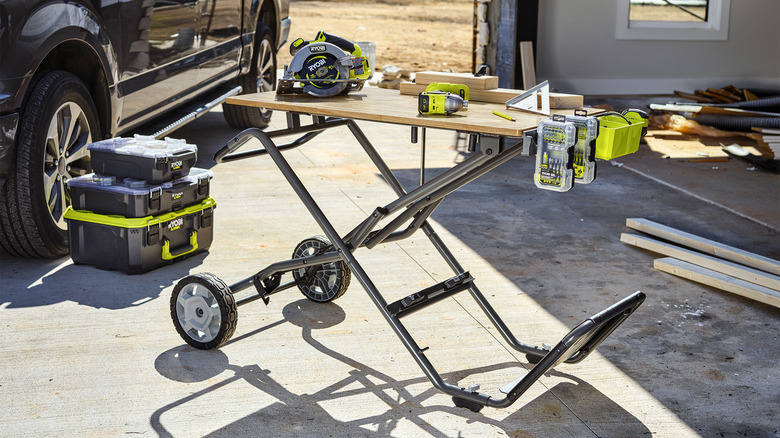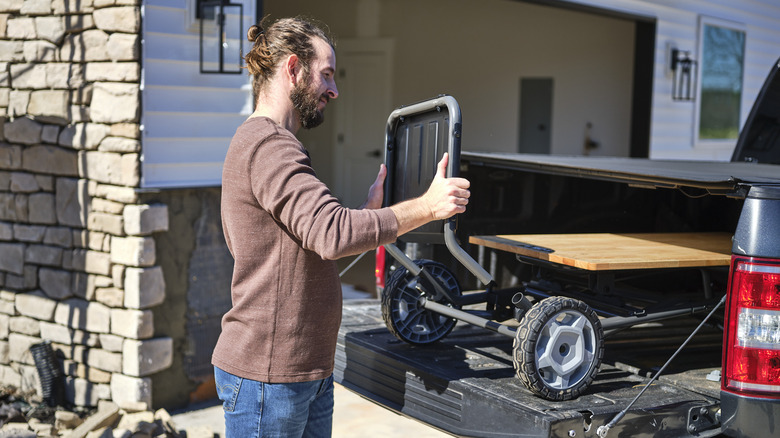Is Ryobi Speed Bench The Next Workstation Craze? What It Is & How To Buy
A yet-to-be released Ryobi product called the Speed Bench Mobile Workstation has been doing the rounds on social media sites like Instagram and TikTok. Put simply, the product is a work bench that can fold into a handcart — and, as you may have already seen, a number of influencers have touted its convenience. The workbench mode has a capacity of 400 pounds, while the cart mode can haul upwards of 300 pounds. For DIYers, the product seems like a useful gadget to have on hand, as you can never have too many conveniently-placed workbenches, especially if you're doing work all over the house, have to repeatedly switch from indoors to outdoors, or roll into the garage frequently over the course of a job.
The aforementioned viral videos have racked up, collectively speaking, millions of views; they depict users measuring on the work surface, integrating it with Ryobi's Link storage system, and wheeling it around. Meanwhile, Ryobi's promotional images show it being used as a surface for miter saws, using it as a dolly, and storing it in a truck bed. According to ToolGuyd, the Speed Bench is estimated to launch in May and retail for $199, though the Ryobi website's product page simply says that it is "coming soon." The work bench will only be available at Home Depot, which is Ryobi's exclusive distributor outside of factory outlets.
Ryobi's portable work bench is getting a lot of attention
As with any product, not just the Ryobi Speed Bench specifically, it pays to be skeptical when something seems to go viral before it is made available for sale and to question whether the attention is authentic or part of a marketing blitz. There's nothing wrong with influencers, reviewers, and other content creators making videos or articles testing the capabilities of products that are supplied to them as long as the creator is sufficiently transparent — in fact, SlashGear recently tested half a dozen Ryobi hobby tools. With that said, no one wants to be duped into thinking a review for anything from cars to phones to power tools is authentic, buying the product, and then later finding out that they had watched an advertisement.
Generally speaking, this transparency is achieved by influencers marking paid content as sponsored, but that doesn't always happen. Recently, the European Commission found that only 20% of influencers who produced commercial content (i.e., paid reviews, partnerships, and sponsorships) disclosed that it was, in fact, paid for by the company the video was about. That's not a comforting statistic.
Ryobi is a very culture savvy company and has attained a large group of fans in recent years with its more DIY and maker-centric tool lines. The Speed Bench fits right in, and Ryobi will likely sell a lot of them. We're not saying the viral Speed Bench content is sponsored or that any given influencer failed to disclose any potential sponsorships, but rather that it is wise to remain prudent when scrolling through social media feeds and be wary of potentially disguised ads and sponsored content posing as genuine reviews.

